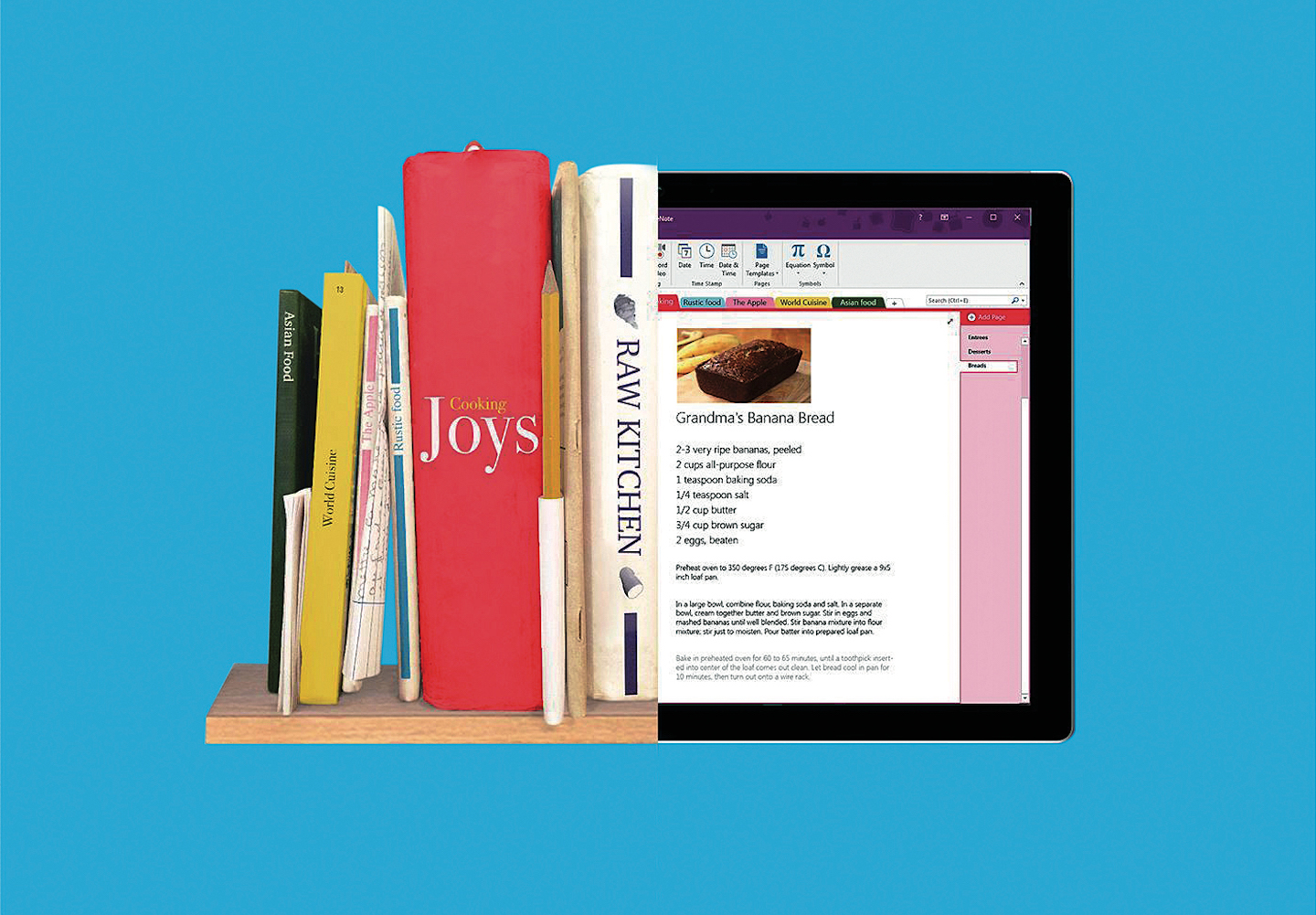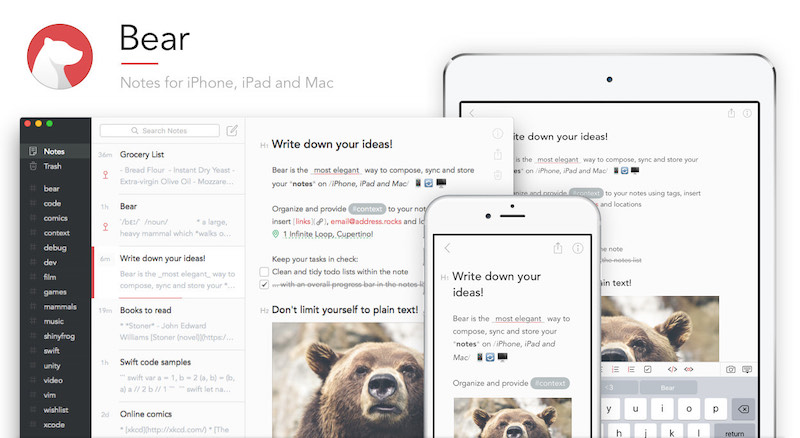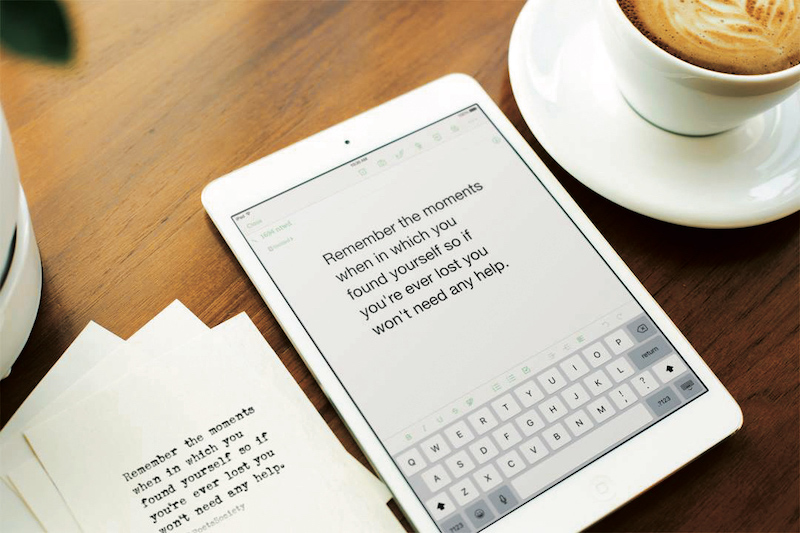
The Microsoft OneNote uses optical character recognition (OCR) technology to turn your handwriting into searchable, digital text (Photo: Microsoft)
If ideas were quantifiable, collecting them would be similar to earning compound interest on an investment. Logging an illuminating realisation or discovery makes it easier for you to think up new ones and note the things in your life that awaken your muse. Although some of the brightest ideas in business, science and politics began as doodles on a napkin from underneath a cocktail glass, a good system for storing your thoughts helps to shepherd your aim into action. Call this bank of ideas your commonplace book.
The commonplace book is believed to have begun in antiquity. Copying your favourite lines from another person’s work into your annotated notebook was a common exercise in Renaissance Europe. This tradition reached notable popularity during the modern period, when literate people were discombobulated by the stream of information that the printing press had unleashed on them. By appropriating nuggets of wisdom or philosophy from others, you can create a nest of information threaded with your own personality and subtle interjection.
Commonplace may not be the best word to describe the contents of a book that are not so commonplace after all. This annotated personal anthology can consist of anything that appeals to and stimulates the compiler: song lyrics, aphorisms, poems, newspaper clippings, recipes, prayers and even overheard conversations. Italian polymath Leonardo da Vinci filled hundreds of pages with observations from his explorations while writer Virginia Woolf treated hers as a capricious hold-all with a mass of odds and ends about her creative endeavours. In modern times, even the genial but “warmly ruthless” former US president Ronald Reagan kept a collection of jokes and stories.
bear_app.jpeg

However, it is important to identify the differences between a commonplace book and a journal. The former is a hodgepodge of people’s words and works that catch one’s fancy, triggering the mind to internalise or dredge something from memory. The latter is more chronological and personal, and includes mostly introspection that gives others a pretty good idea of your likes, prejudices, quirks and mania. In fact, you can already draw parallels between commonplace books and their modern successors on the web: blogs, Tumblr and Pinterest are just some of them.
If the web is a furiously wild Amazon teemed with stray information, the commonplace book is a private patch of green on which you can nurture your thoughts and watch them grow. Of course, bookmarking or digitising your favourite quotes online may seem almost antithetical to the elegant practice of longhand commonplacing. But it is worth converting that dog-eared notebook into a depository of scavenged wisdom to stand the test of time.
Typing scraps of information into a word processor is possible but unwieldy, especially when you need to tidy up your entries. Google Keep makes organising a cinch by scanning and transcribing text from images of book pages. Moreover, you can find images by searching for words contained within them. For example, if you snap a photo with the text “Mischief Managed” in it, you can revisit that picture when you search for those words. The magical equivalent of that in the wizarding world of Harry Potter would be Professor Dumbledore extracting a silvery strand of memory from his temple with a wand and placing it in the Pensieve.
For analysing reading notes, relative newcomer Notion acts as a dashboard to organise themes, ideas, arguments and solutions. Its sophisticated web clipper function, which frees you from ploughing through hundreds of bookmarks, lets you save web content easily for research and inspiration or to share with others. If money is no object, the original and longtime advanced note-taker Evernote trumps with a cross-platform interface.
main_extra_evernote.jpeg

There is no need to fire up your laptop whenever an idea seizes you. The Apple-supported writing app Bear has newfangled export options to help you share quickly, with an advanced markup editor that supports formatting to plain text such as bold, italics and quotations. Just as how good penmanship could evoke enlightenment with every trill and tangle of the alphabet, the app’s rich previews with beautiful typography turn mere codes into prose. The next time you seek comfort in the steady hand of food journalist and chef Ruth Reichl, a banal potato salad recipe may just read like visual poetry.
But what if you want to digitise your physical commonplace book without retyping the content at all? Preserve your original hand-scrawled entries with Microsoft OneNote, which uses optical character recognition (OCR) technology to turn your handwriting into searchable, digital text. Whether you are drawing directly with a stylus or your finger on a touchscreen device, OneNote’s design tools make it hassle-free for you to share with anyone else who wants access.
The simple practice of commonplacing, which keeps stories that are worth retaining or anecdotes that you can return to later, is distinct from a diary that demands time commitment and complete sentences. A commonplace book makes chunky information approachable in bites (or bytes, if you wish), turning microscopically close and interesting observations into macro ideas or goals for the future. With the aid of digital conveniences that taxonomise in detailed categories, you will never have to comb through the marginalia of your book collection or lose a life-transforming insight to a mislaid Post-it Note ever again.
Speak volumes
Keeping track of your favourite reads is now possible with Google Play Audiobook, which allows you to rewind, bookmark, control narration speed and add titles to your daily routine. There is no monthly subscription required and you can navigate chapters with real chapter titles, not track lists. Just purchase the full book on Google Play’s website and listen on the app. Here are some sound choices to get you started.
Ikigai: The Japanese Secret to a Long and Happy Life
By Francesc Miralles and Héctor García
Use the practical tools in the book to discover your ikigai (“a reason for living” in Japanese) and bring meaning to all your days.
Stardust: The Gift Edition
By Neil Gaiman
An enchanting adult fairy tale about a young man who travels beyond the boundaries of his small village to find a fallen star and win the heart of the woman he loves. Narrated by none other than the illustrious author himself.
Trevor Noah: Born A Crime
By Trevor Noah
The comedian and host of The Daily Show voices his compelling, coming-of-age memoir, set during the twilight of apartheid and the tumultuous days of freedom that followed. Illuminating his curious world with unflinching honesty, Noah has woven together a portrait of an unlikely childhood in a dangerous time.
The Little Prince
By Antoine de Saint-Exupéry
Told through the social criticism of the adult world, this beloved 1943 parable of a little boy who leaves the safety of his own tiny planet to travel the universe reminds us that we were all children once.
This article first appeared on Apr 12, 2021 in The Edge Malaysia.


